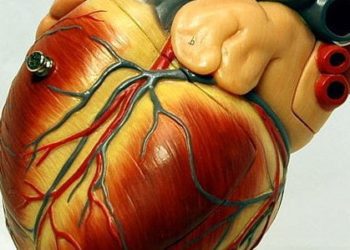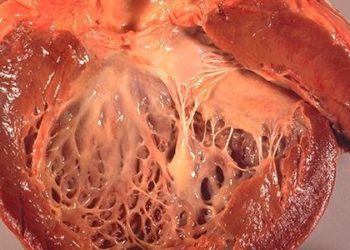Artificial intelligence may assist in early detection of decreased ejection fraction on echocardiograms
1. AI-assisted electrocardiogram (ECG) improves early detection of low ejection fraction in hospitalized patients by enhancing diagnostic precision without increasing echocardiogram use
Evidence Rating Level: 1 (Excellent)
This pragmatic randomized controlled trial evaluated the impact of an AI-enabled ECG algorithm on the early diagnosis of low ejection fraction (EF ≤50%) in hospitalized patients under non-cardiologist care. Conducted at a single academic medical center in Taiwan, the study randomized 13,631 inpatients to either an intervention group (n = 6,840) receiving AI-assisted ECG interpretations or a control group (n = 6,791) receiving standard care. The AI model flagged patients as high or low risk based on ECG-derived probabilities for low EF. The primary outcome was the 30-day incidence of newly diagnosed low EF. The intervention significantly increased diagnosis rates (1.5% vs. 1.1%, HR 1.50, 95% CI: 1.11–2.03; p = 0.023), particularly among AI-identified high-risk patients (13.0% vs. 8.9%, HR 1.55, 95% CI: 1.08–2.21). Notably, overall echocardiogram utilization did not increase (17.1% vs. 17.3%, HR 1.00), but the diagnostic yield improved: 34.2% of high-risk intervention patients undergoing echocardiography were diagnosed with low EF, compared to 20.2% in controls (p < 0.001). Post-hoc analysis revealed increased cardiology consultation among high-risk intervention patients (29.3% vs. 23.5%; p = 0.027), suggesting AI alerts prompted more targeted diagnostic actions. The intervention improved diagnostic efficiency without escalating imaging burden or mortality. The algorithm’s real-time integration into clinical workflows enabled more accurate risk stratification and selective use of downstream resources.
Click to read the study in BMC Medicine
Image: PD
©2025 2 Minute Medicine, Inc. All rights reserved. No works may be reproduced without expressed written consent from 2 Minute Medicine, Inc. Inquire about licensing here. No article should be construed as medical advice and is not intended as such by the authors or by 2 Minute Medicine, Inc.









